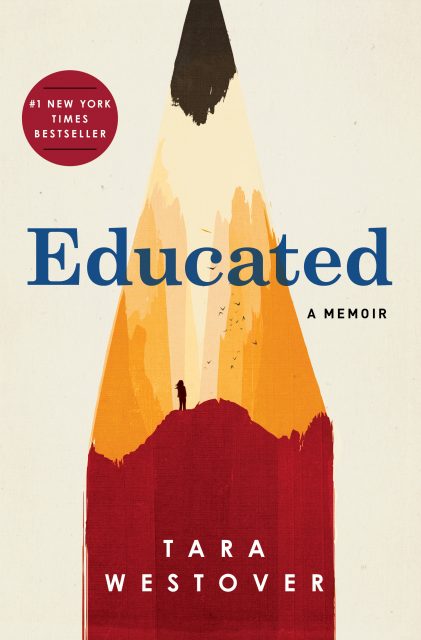
Tara Westover, author of “Educated.” Photo by Paul Stuart.
Tara Westover is no longer Mormon, but in her memoir Educated she tries to be as fair to the religion as she can, noting that the book is not primarily about Mormonism.
“I put that note in because my father is not representative of the Mormon church,” she told RNS in a telephone interview. “I didn’t want people to read the book and find more fuel in it for their own burning prejudices, or incorrect caricatures of Mormons as not going to school or to the doctor.”
Her own family didn’t take children to school or to the doctor, but that was far from typical in her southern Idaho childhood. As she recounts in Educated, her father stockpiled food in preparation for the end of days, which he believed was just around the corner. Westover and some of her six siblings had no birth certificates, didn’t get vaccinations, and for a long while didn’t have a phone.
She began leaving that world behind when she enrolled in Brigham Young University, where she discovered more about what life—and Mormonism—were like outside the confines of her family. At BYU, when Westover was struggling to pay her medical bills and thought she would have to drop out of school, her LDS bishop offered to help her apply for a student grant.
When she refused that, mindful of her father’s many warnings about the dangers of accepting help from the government, the bishop suggested using the ward’s discretionary funds to help her out. She refused that as well, because she didn’t want to draw on other people’s tithing money.
At that, the bishop threw up his hands and wrote her a check for $1500 from his own pocket. She refused that check but did eventually accept the grant.
His generosity struck her. “I encountered beautiful kindness and self-sacrifice from Mormons,” she says. But she also found narrow-mindedness and even cruelty, as from a brother who was both physically and emotionally abusive, and parents who defended him and then accused her of lying about the abuse.
The whole spectrum of human behavior, she says, can be found in most religions.
 That government grant enabled her to stay at BYU, where she graduated in 2008. She then went to England to earn a PhD in history from Cambridge University, and has added to that success with Educated, which was published in February and has spent 12 weeks on the New York Times hardcover best-seller list.
That government grant enabled her to stay at BYU, where she graduated in 2008. She then went to England to earn a PhD in history from Cambridge University, and has added to that success with Educated, which was published in February and has spent 12 weeks on the New York Times hardcover best-seller list.
Along the way, she left Mormonism, and now describes herself as agnostic. “There was a stage in my life where questions about Mormonism felt consuming and immediate, but it’s been a long time since I felt that way,” she says. “There are questions that I have about the meaning of life, but they don’t tend to be theological the way that they used to be.”
Her journey out of the LDS Church had a lot to do with gender and the religion’s prescribed roles for women, she explains. “It was both about how women are supposed to behave in this life, but also the afterlife. The Mormon belief in plural marriage in the afterlife didn’t feel quite right to me.”
One thing she still keeps from her Mormon upbringing is a healthy respect for food storage. Though she’s not stockpiling supplies for the end times, “it makes sense” to have some food laid by in case of emergencies. “I don’t think it’s crazy to have a few weeks’ supply, in case of a natural disaster.”
Westover is estranged from many of her family members, and has not discussed the book with that part of her family from which she is estranged. Before Educated was published, she did show the book to three of her brothers, including her brother Tyler, to whom the book is dedicated. He was in conversation with her as she was writing it, but has started his own blog where he disputes some of her interpretations of events.
She is philosophical about this. “I think people have different perspectives, and that’s fine,” she says. “For one thing, he is about eight or nine years older than I am, and also male. So his whole experience is going to be quite different than mine.”
She plans to continue writing, and will be moving from England to New York City soon to write more on various themes related to Educated. The process of sorting through her childhood for the memoir was cathartic, and helped her remember positive things as well as traumatic ones.
“I went through a period after I lost my parents where I was angry, and so a lot of my good memories turned to rot,” she says. “So in writing the book I was able to reclaim some of those beautiful things, like canning peaches with my mother.”






